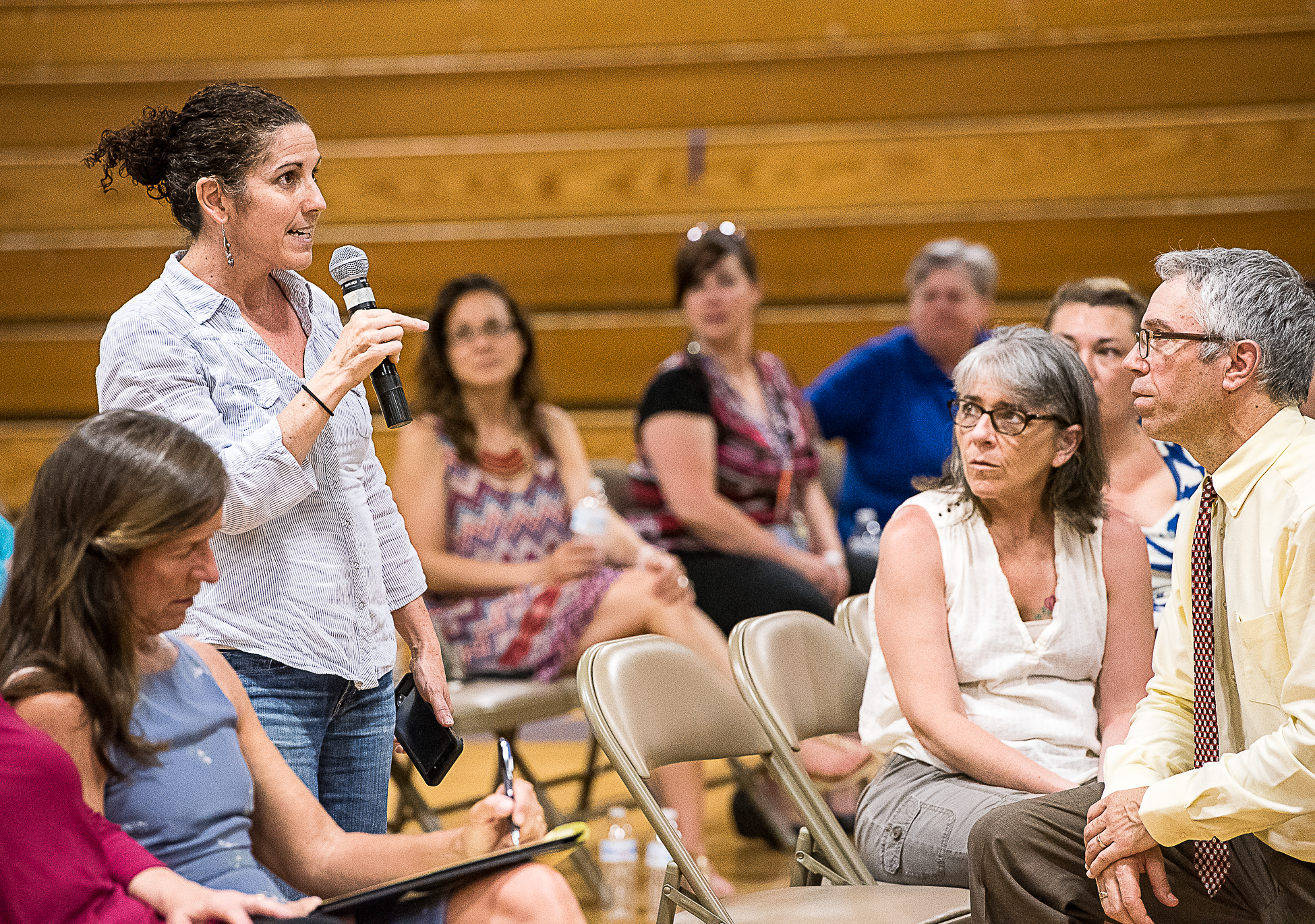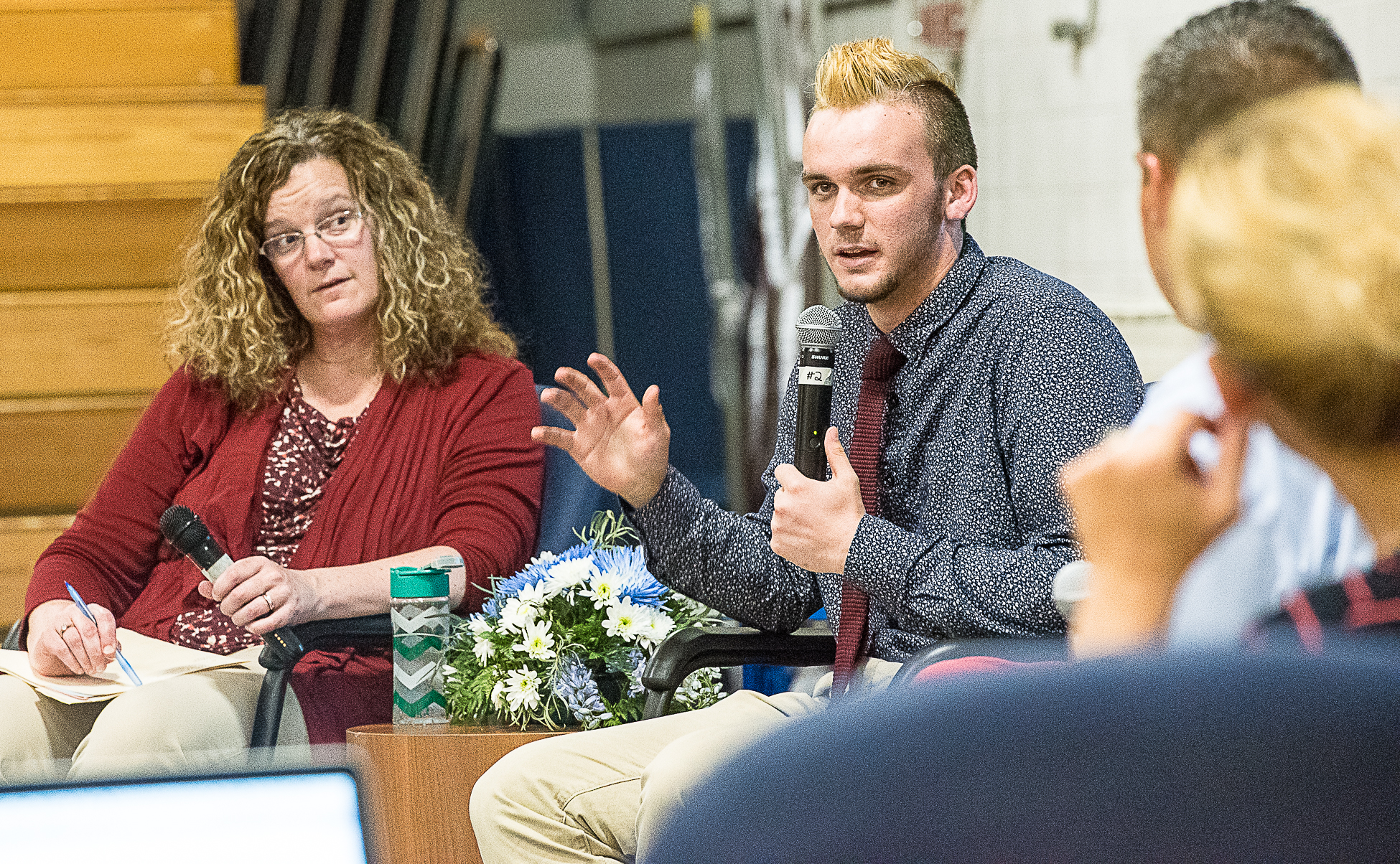
LEWISTON — People at a public forum Monday night seemed to agree that bullying on social media is a problem that ought to be better monitored at school and at home.
Parents, educators, students and community members discussed policing teenagers’ online comments at “Social Media: What Should We Be Doing Differently?” at the Lewiston High School gym.
After the recent suicide of a Lewiston Middle School student, Superintendent Bill Webster put together a panel of people who work closely with either students or digital media to help refine the discussion of cyberbullying.
It’s still unclear whether bullying played into 13-year-old Anie Graham’s suicide, but the issue has become a community concern.
The panelists were Lewiston Middle School Assistant Principal Pam Butler, recent LHS graduate Thomas Jumper, Maine Department of Education Student Assistance Coordinator Sarah Ricker, Sun Journal Social Engagement Editor Larry Gilbert Jr. and Maine Computer Crimes Task Force Detective Abbe Chabot. Craig Freshley moderated.
Butler is the parent of a middle-schooler, and has firsthand experience with a teenager and the troubles of social media.
“We need to make the system work better,” she said. “Our students live in a world where their device is as important as eating or sleeping. They have to have it. It’s a have-to for them.”
“It follows you home and you’re constantly surrounded by that,” Jumper said. “Take a second thought of what you post on social media, and that goes with all generations.”
Butler said she has a lot of students come to her with issues they’ve had over the weekend with social media. “I had an issue with so-and-so over the weekend and then they’re showing me a screen shot from Snapchat,” she said. She added that the students are usually afraid to tell their parents because they might try to take away their phones.
“I think it’s how I use social media, that is how my kids will use it. If I post something mean, which I wouldn’t, but if I did they would too,” Ricker said. “It’s just like you model any behavior.”
“I don’t know how many Facebook arguments between adults I’ve seen in the comments of a post. It happens a lot,” Jumper said.
Gilbert said the Sun Journal is “trying to make more of an effort to eliminate those negative comments on our page. It’s shocking some of the things people say. With their name attached to it, especially, posting on a public site.”
Butler said that “in middle school everything is devastating. That’s the way that middle-schoolers live. If you get a constant barrage of that kind of treatment, it’s way worse. Things people will say get worse.”
Freshley showed a clip from Tina Meier’s TED talk “what kids have to say about bullying and how to end it” in which she shared some personal thoughts on how to help.
Meier’s 13-year-old daughter took her life after a brutal cyberbullying attack.
“The next time a situation arises, listen to them,” Meier said in the clip. “Listen to what they say; don’t interject. Then validate their feelings, not necessarily their actions. Then you can calm down and they can calm down and then you can figure out a solution.”
Chabot said that 90 percent of communication is nonverbal, and without those nuances and physical cues, you lose a lot of what people are really saying.
“Our kids are losing the ability to decipher face to face nonverbal communication,” Butler added.
Ricker said Maine has a bullying law that prohibits bullying and cyberbullying in schools.
“What’s important is it clearly defines and helps a school walk through the process when a kid feels as though they have been cyberbullied and helps the school with what to do and how to investigate those claims and what do we do to help those kids move forward,” Ricker said.
School Committee Chairwoman Linda Scott said she hears from parents who don’t want their children to have phones in school, and she hears form other parents saying, ‘Don’t you dare take my kid’s phone away; I need to be able to contact my child.'”
“How do we make a decision when we know we’ll get backlash, literally, from every perspective from every stance that we’re going to take?” Scott asked. “What are we going to do about this? You need to all be a part of this conversation.”
Freshley posed a question to the audience: What can you do differently to help minimize the negative effects of social media?

Comments are no longer available on this story